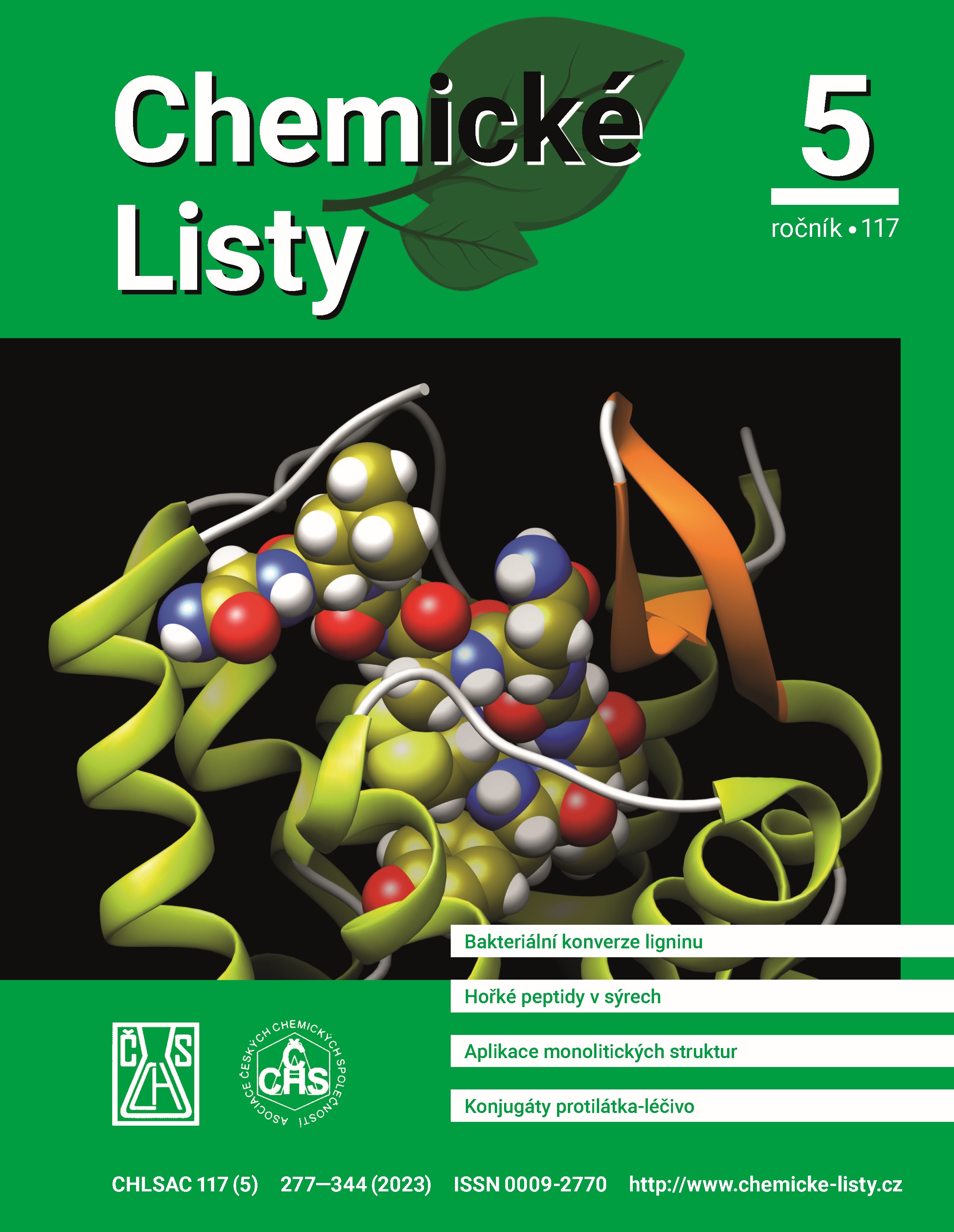Problematika hořkých peptidů vznikajících v procesu zrání sýrů
DOI:
https://doi.org/10.54779/chl20230301Klíčová slova:
hořké peptidy, zrání sýrů, proteolýza kaseinu, hořká chuťAbstrakt
Bitter peptides are formed by the breakdown of proteins and high-molecular peptides during proteolysis. Their formation in cheeses is related to the proteolytic activity of rennet in balance with the peptidase activity of microbial enzymes of lactic acid bacteria. The bitter taste then arises when there is a disproportion between the formation and degradation of bitter peptides by increasing their concentration above the perception threshold. The extent to which bitter peptides affect the overall taste of cheese depends on the balance between their formation and breakdown to non-bitter lower peptides and amino acids. Only a perfectly balanced proteolysis process enables the creation of quality matured cheese with a characteristic taste and aroma. Therefore, a complete clarification of the mechanism is desirable, and thus also the possibility of control and regulation of this process.

Hořké peptidy vznikají rozkladem bílkovin a vysokomolekulárních peptidů v průběhu proteolýzy. Jejich tvorba v sýrech souvisí s proteolytickou aktivitou syřidel v rovnováze s peptidasovou aktivitou mikrobiálních enzymů mlékařských kultur. Hořká chuť pak vzniká při disproporci mezi tvorbou a odbouráváním hořkých peptidů zvýšením jejich koncentrace nad prahovou hodnotu vnímání. Do jaké míry ovlivní hořké peptidy celkovou chuť sýra tak závisí na rovnováze mezi jejich vznikem a rozpadem na nehořké nižší peptidy a aminokyseliny. Pouze dokonale vyvážený proces proteolýzy umožňuje vznik jakostního vyzrálého sýra s charakteristickou chutí a vůní. Proto je žádoucí úplné objasnění mechanismu, a tím i možnost kontroly a regulace tohoto procesu.





